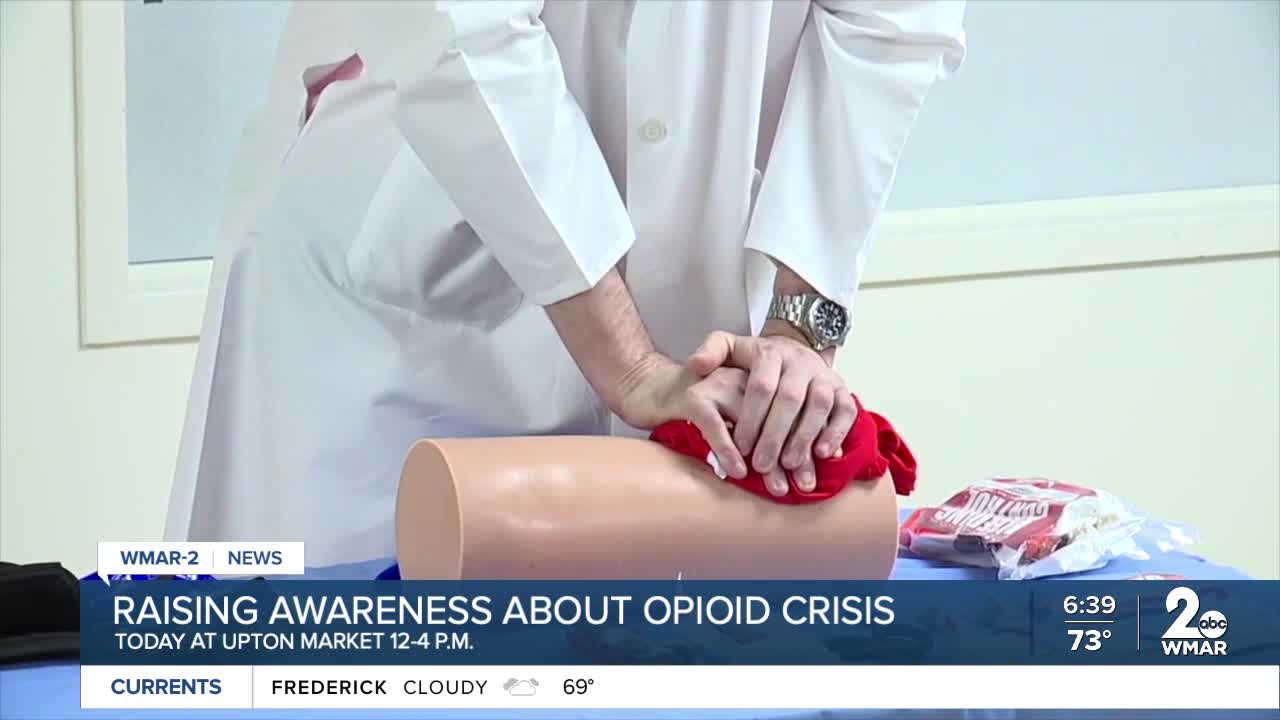BALTIMORE — In West Baltimore, community members are coming together for Revive 21217, a day of action aimed at tackling addiction, supporting families, and saving lives.
The event is being held in the Penn North neighborhood, the same area where July’s mass overdose event sent 27 people to the hospital. Organizers say the day is not only about helping people battling addiction but also the loved ones who care for them.
Nicole Bryant, CEO of We Responders Inc. says she’s found healing while helping others, especially since her father battled addiction for years, sometimes picking up drugs on the same corner where the mass overdose happened.
“I’m a child of an addict. I remember sitting beside him in that bed and no one asked me if I needed something. No one asked me what I was going to do once I took him home. I still had to take care of him, help him, do everything he needed to survive. No one offered me that support," said Bryant.
Tuesday, from noon to 4 p.m. at the Avenue Market on 1500 Pennsylvania Avenue, Revive 21217 will serve as a hub for CPR and First Aid training, ‘Stop the Bleed’ demonstrations, Narcan distribution, and access to housing, wellness and health resources.
Aaron Maybin, co-founder of the Hilton Rec Center, says families are often left to take on the heaviest burden. During the event, families will get the chance to share their stories and voice what kind of resources they need in their community.
“The families are always the ones forgotten first. What we wanted to make sure of is that in the aftermath of such a tumultuous summer, our families aren’t the ones that feel forgotten,” said Maybin.
Community organizations like the No Boundaries Coalition, which is co-sponsoring the event, plan to provide healthy food and other support to attendees.
“This is a big family around here,” said Bolon Xianaru, the group’s Director of Health and Food Justice.
“Baltimore Public Market is a central area, and a lot goes on here that I don’t think people get a chance to see, a lot of collaboration, a lot of love, but a lot of people who have opioid issues. The first thing they think is, ‘I’m dehydrated, I need to go inside.’ We feed them, we give them fruit and bananas. The more we shine light on the fact that this is a family and there are resources here, the more we’ll be able to evolve.”
In addition to emergency response training, leaders will discuss prevention efforts, including drug testing strips, job placement, and long-term recovery resources.
“We have to be able as a community to keep one another cared for until the ambulance arrives because sometimes that can be quick in a few minutes and sometimes it can take up to 30 to 40 minutes and we've seen people die in community when they didn't have anybody on site that had firsthand knowledge of what to do in a traumatic situation like that,” said Maybin.
Maybin says he’s seen community groups rally together with support from the Mayor’s Office of Neighborhood Safety and Engagement (MONSE).
“We've actually seen several individuals being provided with housing, being provided with medical care and access when they didn't have it before,” he said.
But Maybin says the work is far from over. “There are still so many people we haven’t been able to reach. If we want to get ahead of this and be preventative with our care, we have to start at ground zero.”
We Responders Inc. recently launched it’s We Need Recovery Too program. It's for family members and children of addicts. They hold monthly sessions, giving people the space to talk to others going through a similar situation.
“It’s healing for me while I’m helping them, because I didn’t have that. Just to see them try again, to know they’re not alone, to know they have someone they can talk to,” Bryant said.




